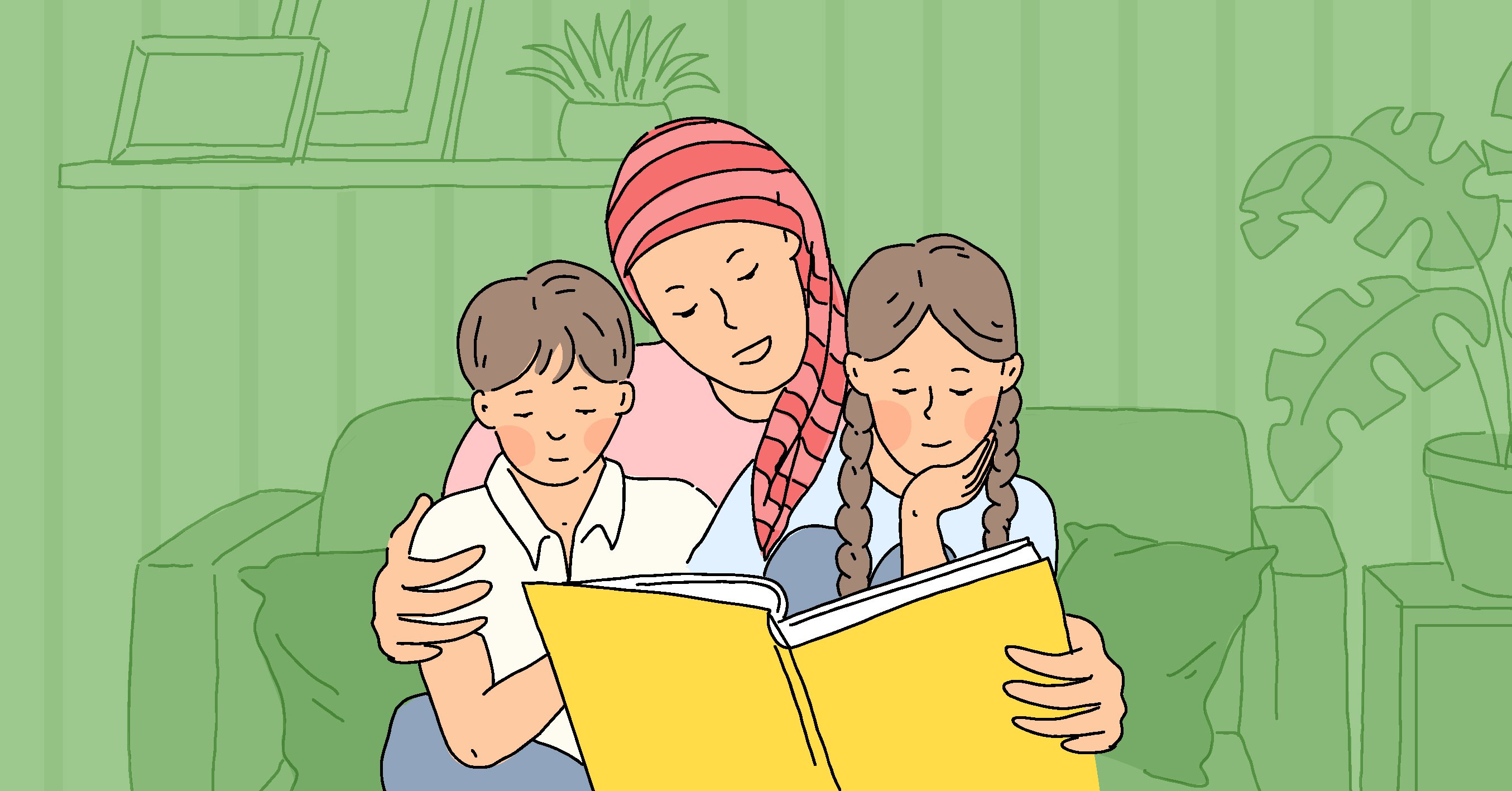
Is It Ok To Hide Your Cancer From Relatives? – Discussion Of The Day
"I didn't talk to them about what was happening, and it may have been the worst parenting decision I have ever made," wrote Tracey Baptiste, a breast cancer survivor and a mother of two. Recently, Tracey and several other parents shared their emotional stories about how they dealt with their cancer diagnosis.
A mother of two and a New York Times bestselling author, Tracey Baptiste, shared her breast cancer journey on Parents, where she talked about why she decided to stop hiding her cancer from her kids. The diagnosis came as a surprise to her in her 30's when she was breastfeeding her child, and something did not feel right.
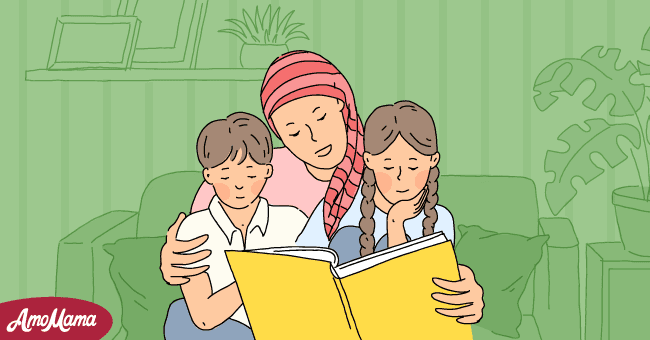
Source: Amomama
Cancer patients often find themselves surrounded by awkward conversations, judgemental looks, worried expressions, and many sympathies. This is why most people decide to keep it a secret and pretend like everything is normal. However, most people later regret hiding their scary diagnosis from their loved ones.
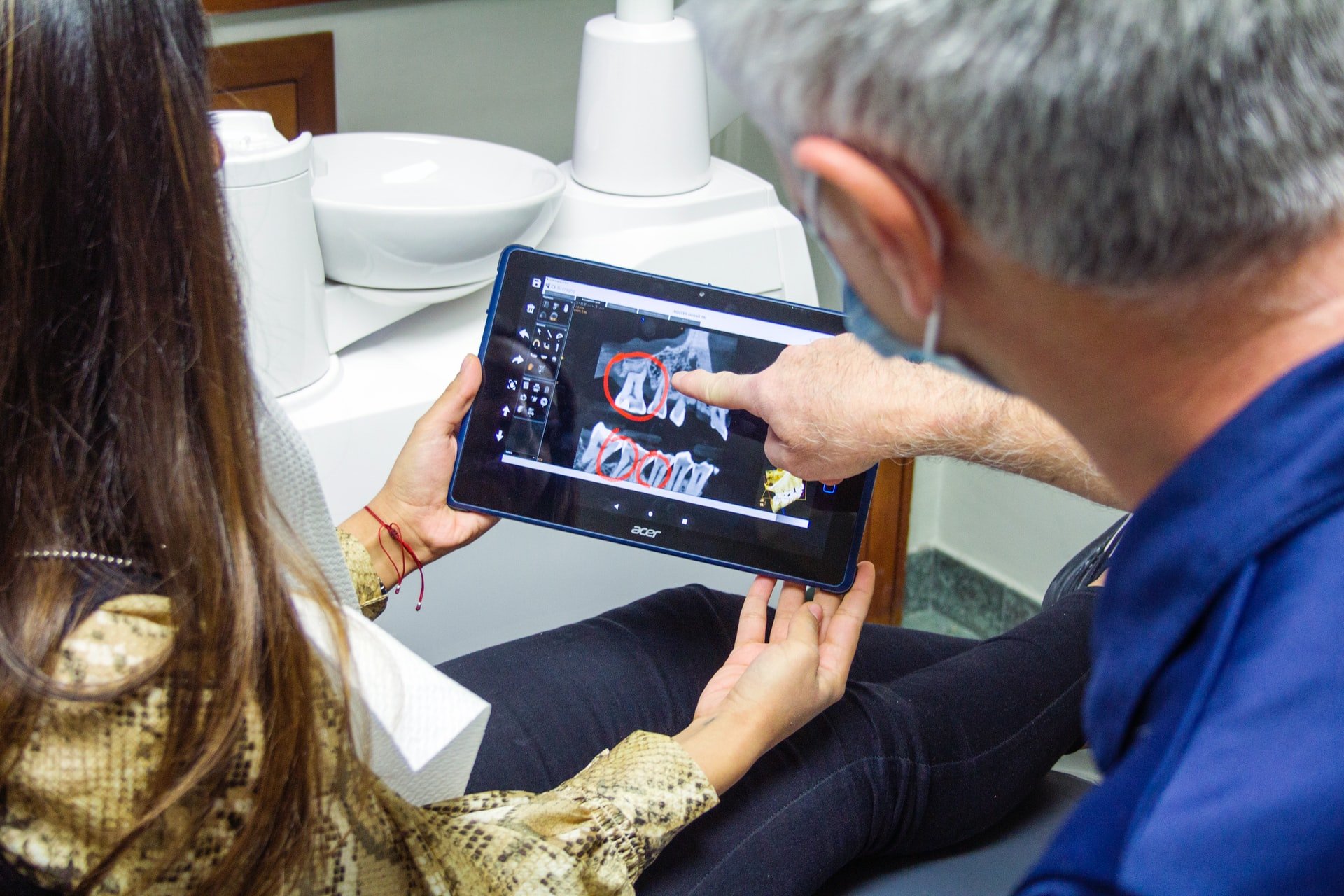
Doctor telling patient about her medical condition | Source: Unsplash
THE MOMENT SHE STOPPED HIDING HER CANCER FROM HER KIDS
Tracey and her husband told their kids that "Mama was ill" and "Mama would be fine." They didn't have the slightest idea that their mother was diagnosed with cancer, and to keep the kids away from the terrible news, the couple decided to send them to their grandmother's place for summer vacation.
The kids returned after two months, and that's when they realized something was not right with their mother. She was wearing wigs and wrapping pretty scarves around her head. She wrote:
"Seven months after my doctor called me into his office with the news, I finally had to deal with the emotional impact of my diagnosis so that my children could deal with it too."
Telling her children about the scary diagnosis was the most challenging thing she ever did. She could feel a knot in the pit of her stomach while the word "cancer" floated in the air between them. Surprisingly, her children understood the situation and convinced her to go for the blood transfusion she had been resisting all this time.
They asked questions about cancer and everything else related to it. She realized that she made the worst parenting decision of her life by not telling them about her cancer.
Telling her kids about her cancer strengthened the family's bond. They can now talk about anything without hesitating. Baptiste's treatment continued for nine months until there was no cancer cell left in her body. The disease came as a shock but left the family with the power to face whatever life threw at them next.
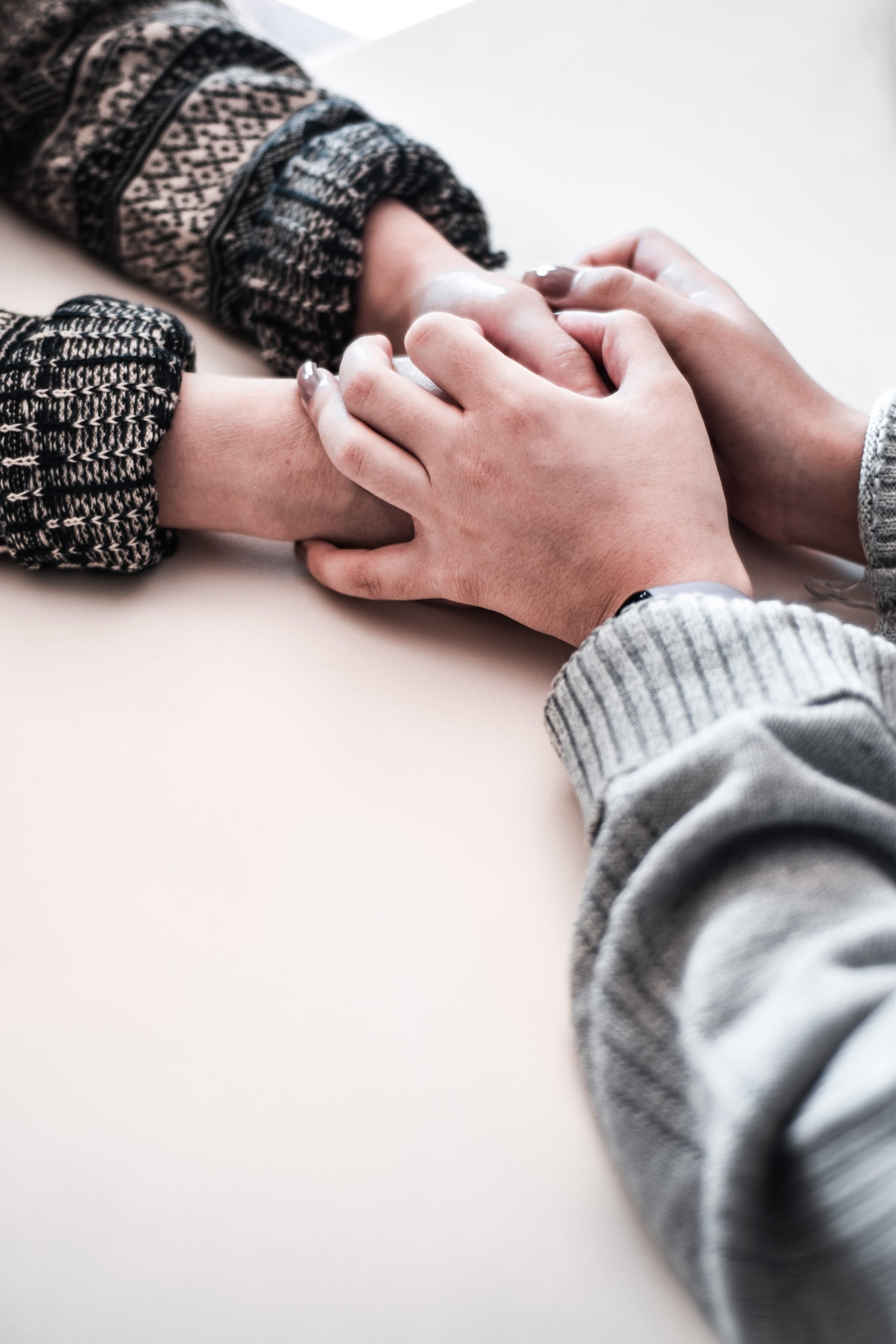
Mother holding child's hands | Source: Unsplash
PEOPLE OFTEN REGRET NOT TELLING THEIR LOVED ONES.
Bo Lutoslawski was diagnosed with Hodgkin's lymphoma, and he didn't have the courage to open up to his parents, who lived almost a thousand miles away from him. He thought they would feel more terrible because they were in Poland and their son was in London. The 42-year-old later regretted not telling his parents about it earlier. In a post, he said:
"At the time I told my wife, but I didn't tell my children. My sons were only three and seven at that time, and I only told my parents about it 10 years later after having a bone-marrow transplant."
Lutoslawski didn't want people around him to think he was dying, so he hid the diagnosis for the longest time until his hair started to fall out because of the treatment. To his surprise, his colleagues were very supportive. They showered him with exceptional warmth that he never expected.
He was able to keep his secret from his parents for the longest time because they were living in another country. When he feared they might get to know about it from some other source, he visited them and took them out for a walk to reveal the truth. After looking at their response, Lutoslawski wished he had talked about it earlier.

Man standing with his friends | Source: Unsplash
THERE ARE DIFFERENT REASONS FOR HIDING CANCER
The mother of three daughters, Marla, was diagnosed with cancer, and the doctors told her she had only 1000 days to live. She and her husband, Jon, had decided not to tell their daughters about it because they didn't want them to count days and worry about their mother. Jon wrote:
"In 2009, Marla’s radiologist called to tell her that she had early-stage breast cancer. She was also BRCA-positive, meaning that she carried the inherited gene for the disease—a troublesome marker. "
Marla beat cancer after eight rounds of chemotherapy, and that called for a celebration. Unfortunately, the malignant cells returned two years later. This time, Marla and Jon shared the bad news only with their parents and siblings.
They didn't want to worry anyone else and wanted to see their daughters confident like before. The last thing Marla wanted was to see her daughters look at her with questioning eyes thinking how many more days their mom is going to live.
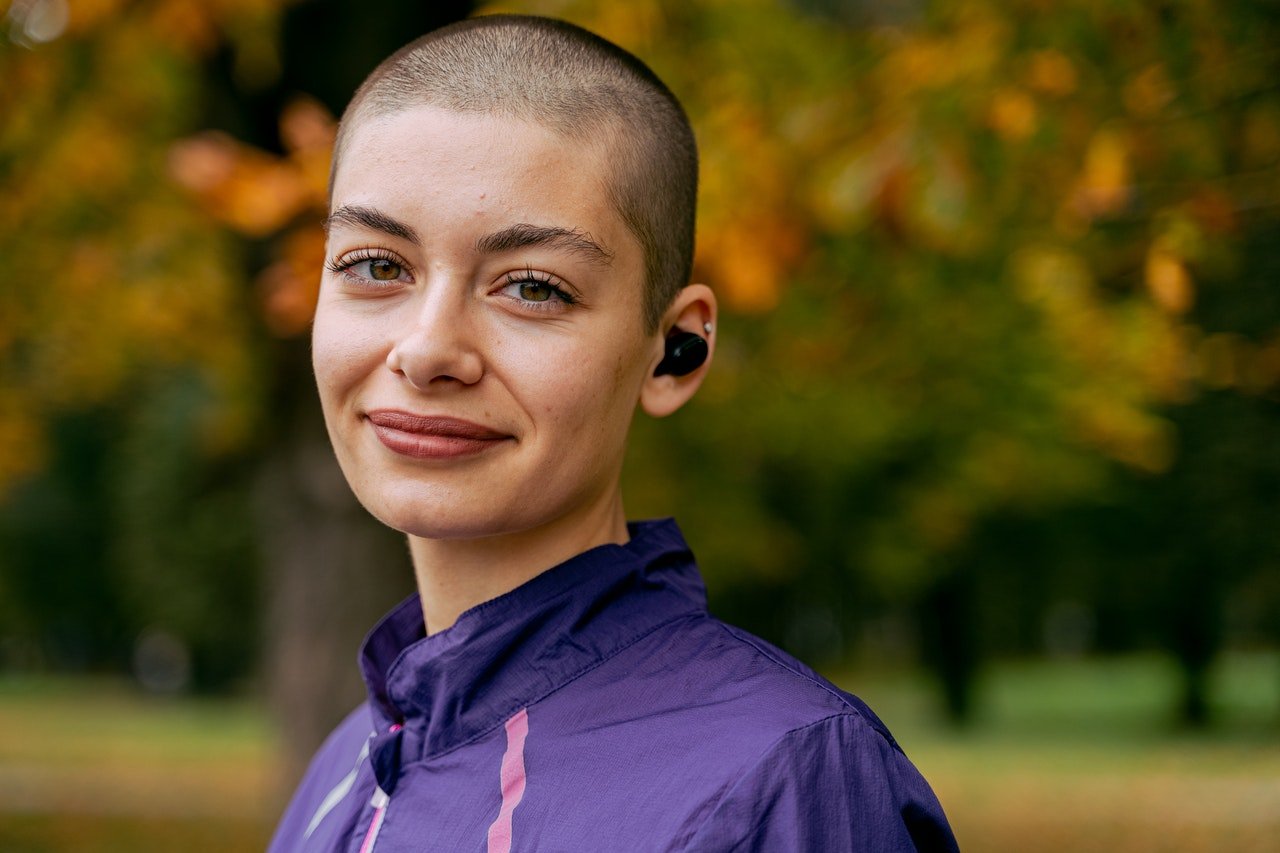
Bald woman smiling | Source: Pexels
Marla wore scarves in the summer months to hide the tumors in her neck. When her voice became hoarse, she blamed it on laryngitis. During the most challenging time of her life, she didn't let her smile go for the sake of her daughters, who could never imagine losing their mother to cancer.
When Marla left the world more than 3,500 days after her initial diagnosis, her daughters thanked their father for not telling them about her illness. They realized that they wouldn't have enjoyed those precious moments with their mother like they did without knowing about her condition.
Marla said her final goodbye to her daughters as they sat beside her hospital bed. She kept her secret for ten years because she wanted her daughters to explore their strengths during this time.
For most people, cancer is the most dreaded disease because of the risk of life-threatening complications. Despite knowing that it can be cured if diagnosed early, most people still consider it their worst nightmare. The disease not only affects you but also changes the way how other people see you.
What do you think about this topic? Should people hide their cancer from their relatives? Or should they confide in them to get extra support? We'd love to know your thoughts on this topic.
The information in this article is not intended or implied to be a substitute for professional medical advice, diagnosis or treatment. All content, including text, and images contained on news.AmoMama.com, or available through news.AmoMama.com is for general information purposes only. news.AmoMama.com does not take responsibility for any action taken as a result of reading this article. Before undertaking any course of treatment please consult with your healthcare provider.
